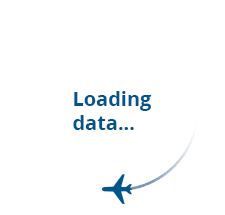
Never miss an important update |
Click to get notified about important updates only. |

99 Alternatives
Opportunities are Infinite
The finance industry prevented £820 million of unauthorised fraud in the first half of 2019, up 14 per cent on the previous year, according to the latest figures from UK Finance. This is equivalent to £2 in every £3 of attempted unauthorised fraud being stopped or £4.5 million being prevented daily.
Over the same period, £408 million was stolen by criminals through unauthorised cards, remote banking and cheque fraud. In addition, £208 million was lost to authorised push payment (APP) scams, where customers are tricked into authorising a payment to an account controlled by a criminal.
Compromising personal and financial data remains a significant driver behind fraud losses. Customer details are being stolen through data breaches at third parties outside the financial sector. At the same time, sophisticated "digital skimming" attacks are being used to steal card data when consumers are shopping online. Criminals also continue to use social engineering techniques to trick customers into divulging their personal information or transferring money.
Katy Worobec, Managing Director of Economic Crime at UK Finance, said:
"Not only does fraud have a devastating impact on victims, but the money stolen goes on to line the pockets of organised criminal gangs involved in drugs, arms and human trafficking. The finance industry is constantly investing in advanced security systems to protect customers from this threat while helping law enforcement apprehend and disrupt the criminals responsible.
"A new voluntary code was introduced in May that has significantly improved consumer protections from authorised push payment scams, with signatory firms committed to reimbursing victims, providing they have met certain standards.
"However, criminals continue exploiting vulnerabilities outside the financial sector to obtain customers' data used to commit fraud. We all are responsible for working together, including online retailers and social media companies, to beat the fraudsters and keep customers' data secure."
The data published by UK Finance covers both unauthorised and authorised fraud.
In an unauthorised, fraudulent transaction, the account holder does not provide authorisation for the payment to proceed, and a third party carries out the transaction. Customers are legally protected against losses caused by unauthorised fraud. Industry research indicates that customers are fully refunded in over 98% of unauthorised fraud cases.
Total losses due to unauthorised fraud across payment cards, remote banking and cheques in the first half of 2019 were £408 million. This is an increase of two per cent compared to the first half of 2018 but a fall of £36 million compared to the second half of 2018. Included within the overall total:
In an authorised push payment (APP) scam, a customer is duped into authorising a payment to another account which a criminal controls.
The APP scam data for the first half of 2019 shows:
Investment scams accounted for the largest proportion of losses amongst personal customers, with £41 million lost to this type of fraud, or over £12,200 per case. Purchase scams remained the most prevalent form of APP fraud, accounting for almost two in three (65 per cent) cases targeting personal customers.
When a customer authorises a payment to another account, even if they are tricked into doing so, current legislation means that they have no legal protection to cover them for the losses – unlike an unauthorised transaction. However, an industry voluntary code that was enacted on 28 May 2019 introduced new consumer protections against authorised push payment scams. Firms who have signed up to the code have committed to reimbursing the victims of these scams, provided the customer has met the standards expected of them under the code.
UK Finance only began collating data on APP scams from 2017 onwards. Losses due to APP scams in the first half 2018 totalled £148 million across 34,129 cases. Today's data is not directly comparable to these figures, as two additional banks began reporting the data to UK Finance in early 2019. In addition, intelligence suggests that increased public awareness in the build-up to the introduction of the Authorised Push Payment Scams Voluntary Code has increased reporting by customers who fall victim to this type of fraud. Data on reimbursements made under the code will be included in UK Finance's annual fraud report 2019, scheduled to be published in 2020.
UK Finance is urging customers to follow the advice of the Take Five to Stop Fraud campaign and remember that criminals are experts at impersonating people, organisations and the police. Your bank or police will never contact you out of the blue to ask for your PIN full password or to move money to another account.
Every report matters – If you have been a fraud or cyber crime victim, report it to Action Fraud.
Article Source - Action Fraud
Contains public sector information licensed under the Open Licence V3.0
Article Date 26th September 2019
To find out more about investment scams, click on 99 Alternatives

The most common Scam Investments include :
|
|
Read More About Protecting Yourself From Scams

| Date | Time | Title | Post |
| No Discussions Available!! | |||
Web: www.nationalcrimeagency.gov.uk
To add to Address financial fraud and scams, the UK...
Most banks are now facing an epidemic of scams, with an...
The Treasury committee asked the UK ministers to use a...
Millions Are Lost in Cryptocurrency Frauds Each Year,...
One of the victims received an email related to the...
An emergency hotline number 159 has been formed to...
Real estate remains one of the most time-tested...
From liquifying your asset to any time you want to have...
Impact investing in real estate is a growing trend with...
Whether buying your first home or selling your...
What is better Silver or Sterling Silver? We all know...
How much do Twitch Streamers Make? Man is fun-loving...
Copyright © 2026 99alternatives Ltd. All rights reserved.
Designed and Managed by Mont Digital
